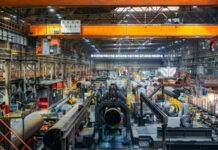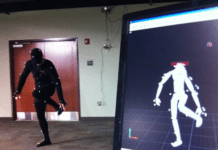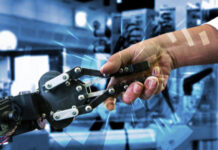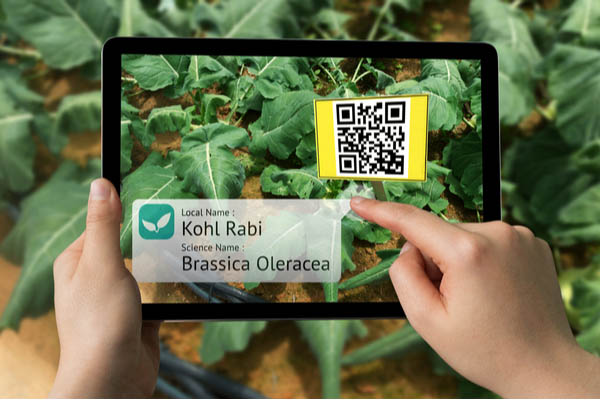
Artificial Intelligence has been adopted by most companies all over the world. Now the food & beverage industry is facing a dilemma: adopt the changes or get left behind. Many people still think that AI is some form of robot sent to destroy the earth but the good news is, that is purely science fiction. AI is an umbrella term used to describe the skills shown by learning systems that are discerned by humans to exhibit ‘intelligence’. AI capabilities include aspects such as speech recognition, image & video recognition, complex analytics, and predictions.
AI has already infiltrated many aspects of the food and beverage industry, from supply chain management, waste management, predictive maintenance, scheduled ordering, and even weather predictions. Machine-learning is paving the future in the industry. It is helping in creating effective ways to produce raw materials so that the ever-growing population can be fed. At the same time, AI is being used to keep an eye on climate change and how it is affecting crops. This way it can be planted in places where it will thrive thus decreasing the chances of any type of waste occurring.
At company-level, AI can contribute to effective and efficient processes which can lead to better profits. The bigger picture also shows us that AI technology can be applied to every stage of the food and beverage sector, from farming to the final product.
There are already many changes that will affect the food and beverage industry in the next few years and there are many ways in which AI can help.
The changing population
The UN estimates that the population will increase by 2 billion in the next 30 years. The change in the population means that it will have consequences for achieving the Sustainable Development Goals (SDG) which includes sustainable food production and protecting the environment. AI can help speed up the food processes if implemented correctly.
Sustainability
Global food systems are responsible for about 35% of human-caused greenhouse gasses and experts have stated that we need to revisit the way we use agriculture and land amid the climate change crisis, sooner rather than later. The immediate use of AI can contribute to better sustainability.
Health and wellness
Many people are looking at substituting meat and dairy with plant-based alternatives. Many food-chain restaurants already offer vegan-friendly meals as people become more aware of their health and the impact it has on the environment. People are hungry for knowledge about these new lifestyles, foods, and AI can give that information immediately.
Convenience
These days it is all about convenience. This has allowed meal kits to shine. Customers can get anything at any time deliver to their doorsteps which means that the industry should anticipate its customers’ needs. AI can be implemented in the logistics processes to speed up the rate of delivery and production.
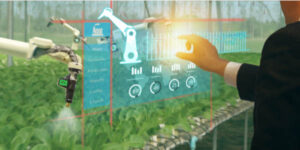
Personalization
Along with convenience comes personalization. AI can assist in giving the consumer what they want before they know they want it. It allows food & beverage producers to come up with personalized offerings along with personalized ways of advertising.
Experts have noted that AI continuously unlocks new possibilities when used in the food & beverage industry especially when it comes to quality control or planning. Reports have shown that AI is going to play a much bigger role in the food & beverage industry in the next few years. Manufacturers might be forced to adopt it. It is going to be especially useful in the farm-to-fork process where AI solutions can be used to predict certain crop yield.
On the other side of the coin, AI can assist in cutting down unnecessary waste that takes place during the ‘fork’-stage of farm-to-fork. Studies have shown that about 5-15% of food is thrown away after it has been purchased. Kitchens that use Winnow, for example, have seen a 40-70% reduction in food waste within 12 months. This then increases cost savings and maximizes profit.
One of the benefits of using AI solutions is the aspect of continuous learning. In a fast-moving market, manufacturers, business owners, and general workers need to know what the trends are and with machine-learning technology, those trends are always at the tips of your fingers. If, for example, customers lean more towards veganism, the trends will show it, and companies can change the way they market and produce their products to appeal to the target market.
It can be very intimidating to jump into AI solutions if you don’t know how. Here are a few things that food and drinks companies can do now:
- Embrace the change. The new wave of technology will bring a different type of customer to the table and will only improve relations with existing consumers. The world is changing and industries need to change with it as well.
- Start small. It will not help if you jump into the deep end. Make small steps towards digital transformation before bringing out the big guns.
- Scale-up. Whilst it is important to start small, remember that you don’t want to stay small. You must scale up as time goes on. Make sure that you establish a strong foundation of data also that the system is fully accessible to create a centralized port for all AI operations.
- Don’t be scared to collaborate. Many initiatives are willing to lend them support that certain companies might lack. Some universities also offer collaborative programs for businesses that are experimenting with new types of technology. These collaborations can only boost your businesses and your brand.
- Be prepared for the challenge. It is not always going to be easy. You might encounter obstacles when learning how to use the technology, you might encounter challenges when setting up collaborations. AI might look very intimidating, so does everything else if you are not used to implementing it into your daily life.
22 April 2020


